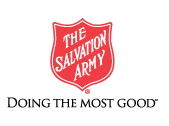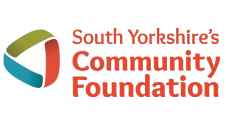
There are many types of abuse, sometimes it can be difficult to recognise what is happening to you. If you feel that something isn’t right and / or you feel scared, seek help. In any emergency, call 999.
Research has found that BAMER women are less likely to seek help from services they perceive as insensitive to their values and needs and this reinforces the marginalisation they experience due to social and economic inequalities.
BAMER women also face cultural and social barriers of honour, shame and stigma attached to leaving abusive relationships. Combined with personal feelings of guilt and responsibility and often the uncertainty of insecure immigration status, they may endure abuse for longer periods, and to be experiencing severe abuse and extreme isolation by the time they seek help.
BAMER women have reported mainstream domestic abuse services may be:
BAMER women require high levels of support to reduce risk of significant harm and homicide by planning and implementing safety plans based on understanding the specific pressures and threats that they face from intimate partners, families and communities.
Click on the link below for more information on types of abuse.
Domestic Abuse can come in different forms; physical, emotional, verbal, sexual and financial and takes place within an intimate or family-type relationship and that forms a pattern of coercive and controlling behaviour.
The complex nature of the domestic abuse experienced by BAMER women includes the harmful practices of ‘Honour’ Based Violence, Forced Marriage and Female Genital Mutilation; often perpetrated by multiple family members and others in communities.
Physical abuse doesn’t always leave marks or scars. Having hair pulled or objects thrown at you is physical abuse too. Physical abuse can include slapping, punching, strangling, using weapons, scalding, burning and being thrown or pushed against things.
Sexual abuse can include being forced to take part in sex acts, being sexually assaulted with objects and being raped.
Sexual Harassment includes the threat of rape and sexual assault.
Mental abuse can include humiliation and degradation, threats against the woman or her children and isolating her from friends and family and can be as devastating as physical abuse. It leaves deep psychological scars, often seriously damaging the self-confidence, self-esteem and self-identity of the person experiencing the abuse. The perpetrator of emotional abuse will often try to isolate and control the person affected as well as using words to undermine them.
Psychological/emotionally abusive behaviours may include:
Financial abuse is one form of control used to gain power over their partner. Financial abuse is aimed at limiting and controlling the partner’s current and future actions and freedom of choice.
If a partner is preventing someone from having financial independence then they could be considered financially abusive. This may include:
Making their partner work without going to work or contributing themselves
Victims can become trapped in a cycle of poverty, causing physical and mental ill-health, a lack of confidence and feelings of isolation.
The Forced Marriage Unit states that a forced marriage is a marriage in which one or both spouses do not (or in the case of some adults with learning or physical disabilities, cannot) consent to the marriage and duress is involved. Duress can include physical, psychological, financial, sexual and emotional pressure.
A forced marriage is when the bride, groom or both are forced into marrying against their will, usually by their families.
Men or women may be tricked into going abroad on a ‘family holiday’ and may be subjected to physical, psychological, emotional, financial or sexual pressure until they ‘agree’ to the marriage. Victims can be imprisoned and threatened with abandonment by their families if they resist the marriage.
Motives for a forced marriage:
Forced marriage is always an abuse of human rights and cannot be justified on any religious or cultural basis. A new Law criminalising forced marriage came into force in June 2014, forcing someone into marriage in England and Wales can carry a 7-year imprisonment. The change also criminalises forcing a British national into marriage outside the UK.
The CPS describes ‘honour’-based violence as an incident or crime “which has or may have been committed to protect or defend the honour of the family and or the community.” ‘Honour’ can be the motivation, excuse or justification behind a range of violence against women and girls.
‘Honour’ is also recognised as Izzat, Namus, Ghairat, or Sharam.
HBV is usually carried out by immediate family members, sometimes with the involvement of relatives and the wider community. Victims can be male or female, although more severe abuse is aimed towards women due to the male dominated structure of honour-based communities.
Examples of ‘honour’-based violence:
Female genital mutilation (FGM), sometimes known as cutting or female circumcision, describes a range of procedures which involve partial or total removal of the external female genitalia for non-medical reasons.
FGM happens all over the world. Practising communities originate from parts of the Middle East, Asia and Africa. It has been estimated that over 20,000 girls under the age of 15 are at risk of female genital mutilation in the UK each year, and that 66,000 women in the UK are living with the consequences of FGM. However, the true extent is unknown, due to the “hidden” nature of the crime.
The girls may be taken to their countries of origin so that FGM can be carried out during the summer holidays, there are also growing concerns that many girls may have FGM performed in the UK.
FGM is usually carried out on young girls between the age of 4 and 15.
The procedure is traditionally carried out by a woman with no medical training, anaesthetic or pain relief and is usually carried out using knives, scissors, scalpels, pieces of glass or razor blades.
There are four main types of FGM:
There are no health benefits to FGM and the process causes immediate and long term effects both mentally and physically. FGM can also lead to death.
FGM is a crime in the UK. It’s also illegal to take a British national or permanent resident abroad for FGM or to help facilitate this. The maximum sentence for carrying out FGM or helping it to take place is 14 years in prison.
Trafficking is the movement of people by means of the threat or use of force, coercion or deception.
It is an abuse of power or position of vulnerability or the giving or receiving of payment or benefit to gain control over another person.
Trafficking is typically for the purposes of sexual exploitation (through prostitution), forced labour, domestic servitude, slavery or the removal of organs.
Many victims of trafficking are recruited through deception, coercion, psychological, physical force or threats.
During the transportation process, false documents may be used or the trafficker may hold the passport. Victims are never left alone during the journey. Experiences of Transportation can include:
Once a victim reaches their destination, they are then exploited to and forced into situations as outlined above.
It is common a victim of trafficking to experience:
Experiencing trafficking can have profound long and short term physical and emotional effects due to the large amount of trauma that a victim may have suffered.
Child sexual exploitation (CSE) is a form of sexual abuse that involves the manipulation and/or coercion of young people under the age of 18 into sexual activity.
Children and young people are sexually exploited for money, power or status through a variety of ways. They may be tricked into believing they’re in a loving, consensual relationship, they might be invited to parties and given drugs and alcohol, through street gangs, in religious environments, and by those in positions of authority and they may also be groomed online. The common theme in all cases is the imbalance of power and the control exerted on young people by the exploiter / perpetrator.
Some children and young people are trafficked into or within the UK for the purpose of sexual exploitation. Sexual exploitation can also happen to young people in gangs.
Child sexual exploitation is a hidden crime. Young people often trust their abuser and don’t understand that they’re being abused. They may depend on their abuser or be too scared to tell anyone what’s happening.
It can involve violent, humiliating and degrading sexual assaults. In some cases, young people are persuaded or forced into exchanging sexual activity for money, drugs, gifts, affection or status. Child sexual exploitation doesn’t always involve physical contact and can happen online.
This definition of child sexual exploitation was created by the UK National Working Group for Sexually Exploited Children and Young People (NWG) and is used in statutory guidance for England.
Sexual exploitation of children and young people under 18 involves exploitative situations, contexts and relationships where young people (or a third person or persons) receive ‘something’ (e.g. food, accommodation, drugs, alcohol, cigarettes, affection, gifts, money) as a result of them performing, and/or another or others performing on them, sexual activities. Child sexual exploitation can occur through the use of technology without the child’s immediate recognition; for example being persuaded to post sexual images on the Internet/mobile phones without immediate payment or gain. In all cases, those exploiting the child/young person have power over them by virtue of their age, gender, intellect, physical strength and/or economic or other resources. Violence, coercion and intimidation are common, involvement in exploitative relationships being characterised in the main by the child or young person’s limited availability of choice resulting from their social/economic and/or emotional vulnerability.
Contact Ashiana or click here to find out how you can receive support and information.
Ashiana can also provide training and awareness raising to cross sector organisations, get in touch for more information.





